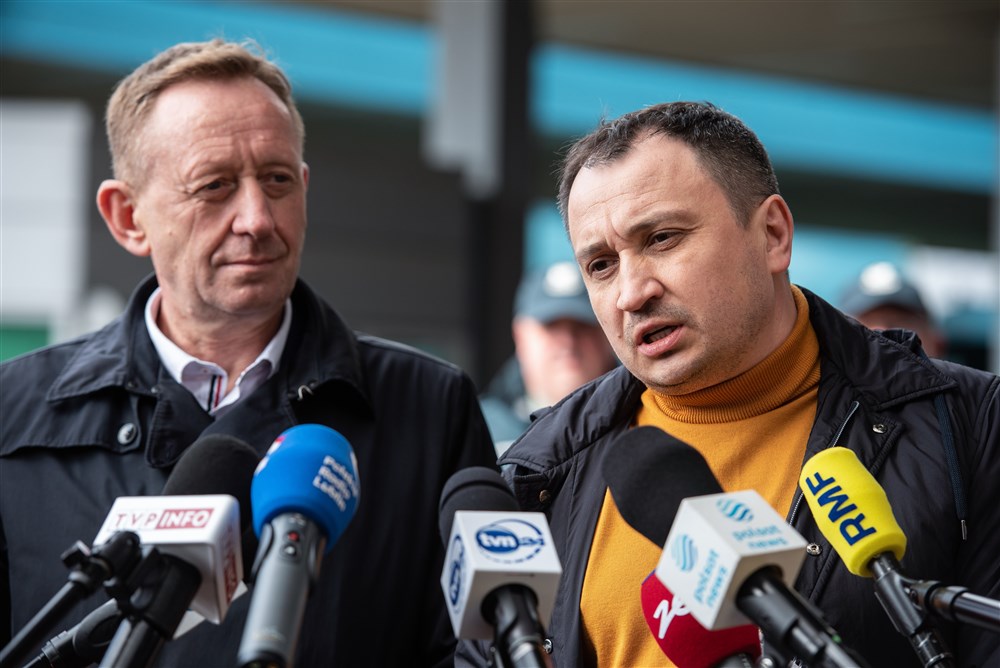The European Court of Human Rights (ECHR) on June 8 rejected a series of applications challenging legislation on the abolition of eugenic abortions in Poland, on the grounds that the applicants could not prove to be adversely affected by the law.
Eugenic abortion describes the elimination of a foetus based on perceived or actual physical problems. The women argued that the legislation violates their human rights because it would force them to carry any future pregnancy to term, regardless of whether the foetus had developed abnormalities.
However, the ECHR justices ruled that the applicants did not provide sufficient justification to hear the case, particularly given that it concerns what was termed a hypothetical, future violation of human rights.
The Court refused to consider the cases as the applicants could not claim to be “victims” because they were not pregnant or expecting a child with a disability. At issue was the decision of the Polish Constitutional Court ruling in 2020 that eugenic abortion is contrary to the constitutional principles of respect for human life and dignity endowed upon every human being from before birth.
The Constitutional Court ruling was controversial as it tightened up the law that had previously allowed abortions in cases of malformed foetuses. Abortion in Poland is now permissible only in cases where a mother’s health and life are in danger or when the pregnancy is the result of crimes such as rape or incest.
In 2021, just 107 abortions were performed legally in the country.
The European Centre for Law and Justice (ECLJ) think-tank welcomed the decision of the Court, saying the decision “is all the more remarkable given the considerable pressure exerted on the court by abortion lobbyists”.
That was in reference to the Polish Federation for Women and Family Planning (FEDERA), which had supported the applicants, and human rights and pro-abortion international organisations such as Amnesty International, Human Rights Watch, the International Planned Parenthood Federation European Network and the World Organisation against Torture.
There was also support from the United Nations Group on Discrimination against Women and the Council of Europe’s Commissioner for Human Rights.
The ECLJ argues that the pro-abortion lobby is attempting to use European courts to impose abortion-on-demand on a pan-European basis. The European Convention on Human Rights, which provides the basis for rulings from the ECHR, does not explicitly refer to the subject of reproductive health or reproductive rights.
Reacting to the European Court ruling, it states that “despite all their efforts and prestige in the eyes of the world, the pro-abortion groups did not succeed in convincing the Court, which refused to allow itself to be crudely used – and demeaned – for purely political ends”.
However, the ECLJ admitted that the pro-abortion lobby will continue its campaign and that there were still around a thousand cases to be heard before the court. It flagged up one such due to be heard by the ECHR that “concerns a Polish woman who feels she has been subjected to a form of torture and an invasion of her privacy for having to travel to the Netherlands and spend 1,220 euros to abort her child with Down’s syndrome in the seventh month of pregnancy.”
The ECHR has the power to award compensation to victims or even instruct a country to change its laws, although in practice the 46 Council of Europe members over which it presides have been known to snub its directives.
The Court has ruled in the past on complaints relating to Poland’s pre-2020 abortion laws. In 2007, it awarded a Polish woman compensation because she did not have the proper recourse to appeal after doctors denied her requests for a termination.
Abortion is likely to be a major issue in the Polish parliamentary elections due this autumn. The ruling conservatives support the restrictions on abortion. However, the main liberal opposition PO has, together with those on the left, declared that it supports abortion on demand.





